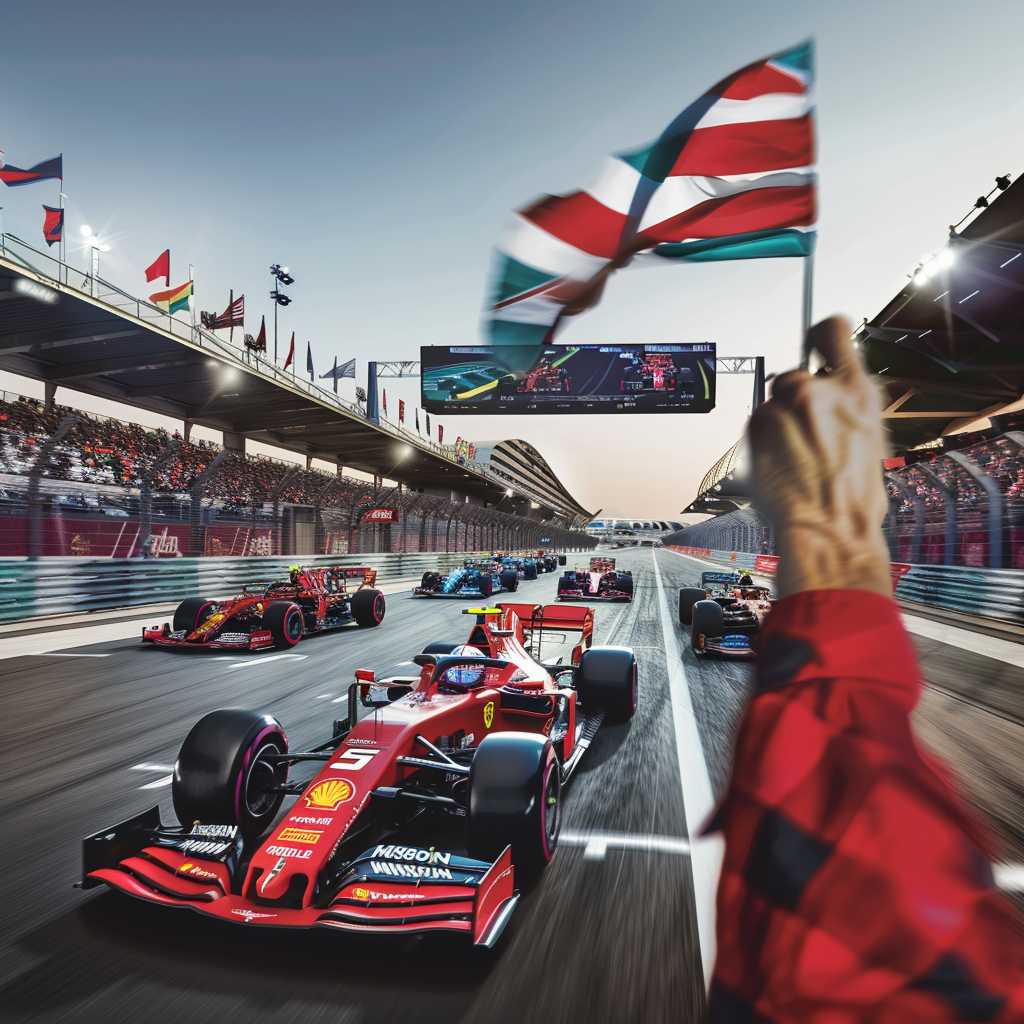The Thrilling World of Formula 1 Racing
Formula 1, often referred to as F1, stands as the pinnacle of motorsport race engineering, combining high-speed competitions with cutting-edge technology. The series has a rich history and a global fanbase captivated by the mix of speed, skill, and spectacle. Whether manifested through the thrilling wheel-to-wheel battles, the roar of the engines, or the nail-biting championship chases, Formula 1 consistently delivers excitement.
The Genesis and Growth of Formula 1 Racing
Formula 1 racing originated around the 1940s, soon after World War II. Its set of uniform regulations referred to as the ‘formula’, hence the name, placed an emphasis on technical prowess and driver ability. The first season of the Championship transpired in 1950, with Giuseppe Farina seizing the inaugural World Championship title driving for Alfa Romeo.
Technical Innovation and Regulations
The continued evolution in the sport sees changes in regulations designed to improve competition, safety, and sustainability. Formula 1’s engineering teams target constant innovation in components like the power unit, aerodynamics, and chassis design. The hybrid power unit reflects hybrid technology advances while generating significant horsepower. Biannual rule changes often alter elements like tire sizes, fuel allowances, and aerodynamics design to enhance racing competitiveness or safety standards.
The Grand Prix Circuit
Grand Prix races, the individual contests that comprise the Formula 1 calendar, occur worldwide on iconic race tracks as well as street circuits encapsulating cityscapes. Each season typically starts in March and continues until November and features events that challenge drivers and teams alike, from Monaco’s tight corners to the long straights of Monza.
Driver Talent and Team Dynamics
Success in Formula 1 relies heavily on driver skill and their performance in seizing opportunities during races. Drivers like Michael Schumacher, Ayrton Senna, Lewis Hamilton, and Juan Manuel Fangio symbolize excellence with multiple World Championships to their names. Team dynamics play a crucial role as well, with leading teams like Ferrari, Mercedes AMG Petronas, McLaren Racing, and Red Bull Racing implementing meticulous strategy during qualification phases and races.
Technological Advancements
Formula 1 stands at the forefront of automotive innovation. Cutting-edge technology not only leads to performance benefits within Formula 1 but often trickles down into road car development. These advancements encompass not only pure engine technology but have also contributed significantly to safety improvements in automobiles across the world.
Achieving Sustainability in Formula 1
Sustainability initiatives are becoming increasingly important in the Formula 1 industry. The leaders have committed to making racing more sustainable with objectives like achieving net zero carbon footprint by 2030. Recent measures include fuel efficiency improvements and plans for biofuel introduction.
Economic Impact
Formula 1’s influence reaches beyond sports entertainment. Hosting a Grand Prix can significantly impact local economies through job creation, tourism increase, infrastructure development, and extensive media exposure generating advertising revenue.
Cultural Influence and Global Outreach
The sport’s wide-reaching allure is perpetuated via cultural integration. Top-tier races bring lasting memories and often become part of a nation’s weekly rhythms when the circus comes to town. Furthermore, initiatives like F1 in Schools aim to inspire young people globally to grasp an understanding of STEM disciplines (science, technology, engineering, mathematics), blending education with excitement for racing.
Formula 1 in the Digital Age
Amid rising viewership figures and fandom engagement on social media platforms under Liberty Media’s ownership, Formula 1 aggressively pursues digital expansion through online streaming services. As strategies pivot to increase the series’ marketability to younger audiences through virtual platforms such as esports collaborations broaden F1’s sphere of influence.
Competition and Controversy
Formula 1 has seen its fair share of controversies over years, ranging from team orders affecting race outcomes to complex disputes over rule interpretations. The FIA (Fédération Internationale de l’Automobile), responsible for overseeing many motorsport events including F1, implements measures intended to address such concerns through penalty systems designed to maintain fairness.
Notes
Image description: Vibrant race cars gliding at high speed around a sleek circuit lined with enthusiastic fans waving flags; Above them looms a colossal display showcasing driver timings against a backdrop of clear skies.
